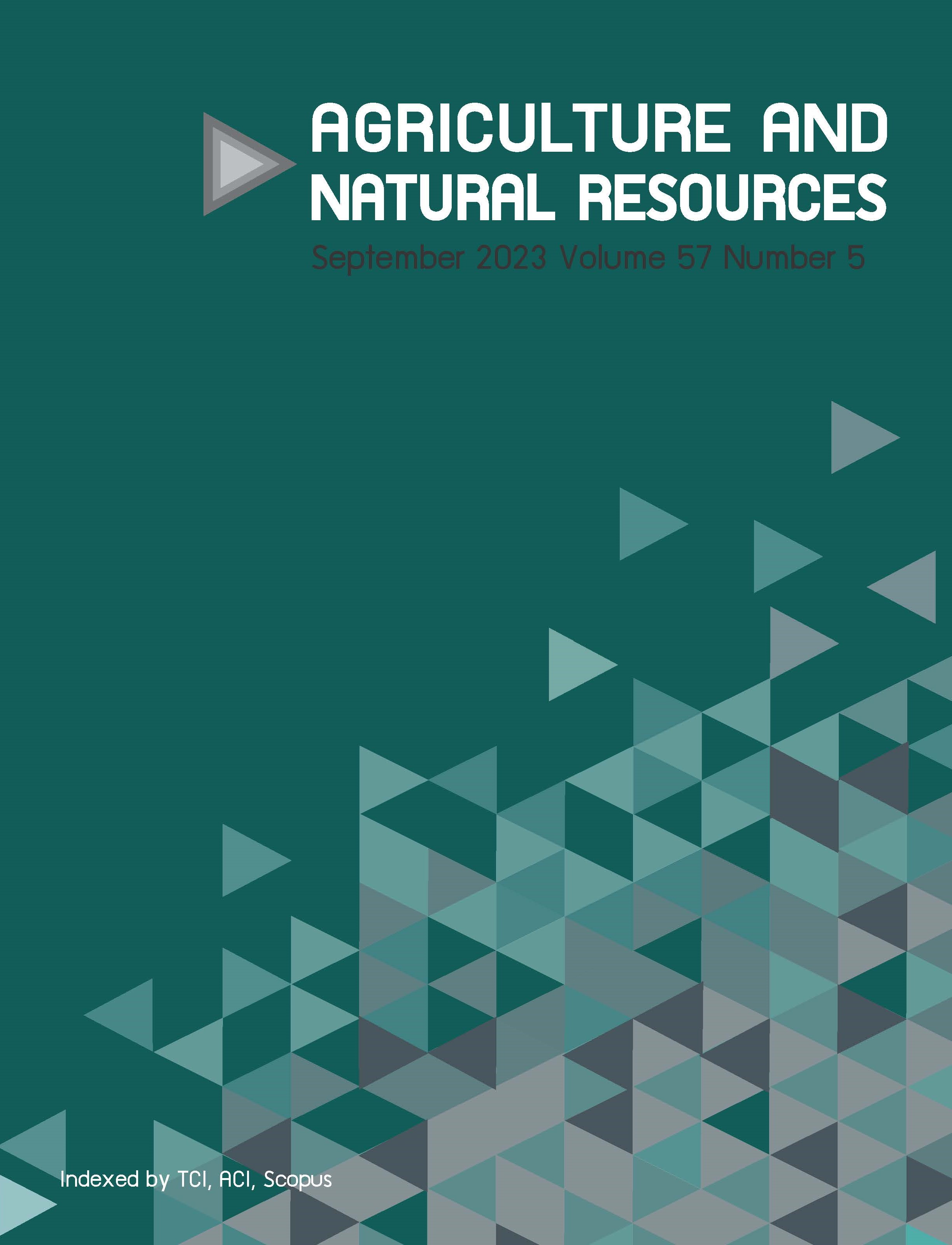Effects of alternate wetting and drying water management and rice straw incorporation on sustainable rice production under rainy season conditions in central Thailand
Keywords:
Alternate wetting and drying (AWD) water management, Rainy season, Rice straw incorporation, Sustainable rice productionAbstract
Importance of the work: Alternate wetting and drying (AWD) to save water and rice straw (RS) management are important for sustainable rice production in Thailand.
Objectives: To investigate the synergistic effects of AWD and RS incorporation for rice production in the rainy season.
Materials & Methods: Pathum Thani 1 rice was grown during the rainy season in 2022. Plant growth rates, yields and costs were observed in one control [continuous flooding (CF)] plot and three AWD plots, where for the applied chemical fertilizers, the recommended rates and one-half of these rates and RS, or organic fertilizer and RS were applied.
Results: The irrigation times and oxygen redox values of the paddy water were almost the same in both the CF and AWD treatments. AWD with RS and cattle manure incorporation increased the grain yield by 15%, whereas decreasing the chemical fertilizer rate and the RS rate to one-half the recommended amounts decreased the grain yield by 19% compared to CF paddy without RS and cattle manure. Applying the recommended rate of organic fertilizer instead of chemical fertilizer under AWD did not result in a yield reduction, although lower growth rates of the rice plants were observed. The costs were higher in the AWD treatments due to RS and cattle manure incorporation. The benefit-to-cost ratio (B:C) values were not offset by the higher grain yield and were lower in the AWD treatments.
Main finding: RS incorporation and AWD increased the grain yield in both the conventional and organic practices, using only the recommended rates of fertilizer. However, the increased yield was not sufficient to offset the amendments cost and therefore B:C decreased with the rainy season conditions.
Downloads
Published
How to Cite
Issue
Section
License
Copyright (c) 2023 Kasetsart Universityonline 2452-316X print 2468-1458/Copyright © 2022. This is an open access article under the CC BY-NC-ND license (http://creativecommons.org/licenses/by-nc-nd/4.0/),
production and hosting by Kasetsart University of Research and Development Institute on behalf of Kasetsart University.







